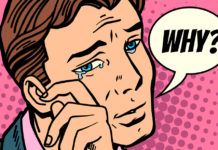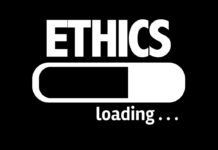Out of the Bubble: Now or Never?
Never in human history did a powerful institution, no matter how harmful and corrupt, slide into self-inflicted irrelevancy. Institutions like the current psychiatric system can only be toppled by a powerful social movement.
Insane Medicine, Chapter 6: Neoliberalism and the Compare-and-Compete Society
Neoliberalism teaches people that suffering has nothing to do with the inequality they experience, but that it comes from their own individual failures of body and mind, and requires "experts" to identify and treat it.
Stop Saying This, An Encore!
Continuing the series, we look at discussions of "chemical imbalances," medications, and diagnoses, as well as telling people to "calm down" and a further look at the "observer."
To the Young Person Who Doesn’t Identify with Their Disability Diagnosis Anymore
Your diagnosis should serve YOU. Not your parents, your doctors, your teachers, or the next door neighbor. We should be fighting for a future where the person being labeled has the ultimate say over how doctors and therapists view them.
No, Jill Biden Should Not Be Called “Doctor”… But Only Because No One Should
Jill deserves all the defense she is receiving. However, this rush to defend Jill’s honorific usage is missing a much bigger and far more pervasive point: NO ONE should be called “Dr. Last-name.”
Dr. Pies: Still Going Wrong
In his attacks against the British Psychological Society's report "Understanding Depression," Dr. Pies falls into his own trap: "There are none so blind as those who will not see."
Insane Medicine, Chapter 5: The Manufacture of Childhood Depression (Part 2)
The promotion of SSRI antidepressant use began with the pharmaceutical industry and occurs despite evidence that these drugs are harmful, not helpful, in children and adolescents.
Literally Indescribable: Are Antidepressants Addictive?
“My life was very, very good.” That’s how Michael sums up how things were for him—prior to his suffering from devastating withdrawal effects after discontinuing GlaxoSmithKline’s blockbuster drug Paxil.
Finding Meaning in Suffering: How Existentialism Can Help
Suffering is a universal human condition. But without making meaning of suffering, it can overwhelm us. Finding meaning in suffering might help to find the will to survive when life is difficult.
Insane Medicine, Chapter 5: The Manufacture of Childhood Depression (Part 1)
The medicalisation of our emotional lives has led to a horrific cultural shift in which we, and our children, have become alienated from and suspicious of our emotions, chipping away at our natural resilience.
No, Autism Is Not Over-Diagnosed
Autism is an umbrella diagnosis at this point. The broadness of the diagnosis doesn’t tend to be useful to clinicians. But it is very useful to the individuals who live with it.
Exploring Psychiatric Drug Withdrawal: A Town Hall Discussion Series
Our new discussion series aims to explore what we do and don’t know about safe withdrawal from antidepressants, antipsychotics, benzodiazepines and stimulants.
The Ups and Downs of Online Therapy
Now that the novelty has worn off and we are able to step back and analyze the situation, what does the switch to teletherapy portend for our profession?
New FDA Study Shows Benzodiazepines Can Cause Long-Term Injury
The FDA has finally acknowledged the adverse effects of benzodiazepines, the dangers of withdrawal, and that the current packaging does not sufficiently warn of these harms.
Insane Medicine, Chapter 4: The Manufacture of Autism Spectrum Disorders (ASD) (Part 2)
No one has come near to finding a genetic basis or a characteristic neurological abnormality for autism, and as a result there is no biological marker or brain scan used to diagnose ASD.
Social Adversity, Mental Distress, and the Theatre of the Oppressed
The theatre of the oppressed directly challenges societal problems of oppression. Here the involved learn much from the enactment—concrete possible solutions and possible practices of resistance.
Dual Diagnosis Anonymous: Peer Support for Those Who Need It
What worked for participants is the compassionate, welcoming, inclusive and non-judgmental approach of DDA. It is about peer support, role modelling, hope, building skills… acquiring self-confidence and building a new identity.
A Psychiatrist Critiques Psychiatry, and Does a Great Job!
Dr. Lieblich's critique of psychiatry is precise, hard-hitting, and uncompromising, a superb and compelling summary of the case against psychiatry.
Insane Medicine, Chapter 4: The Manufacture of Autism Spectrum Disorders (Part 1)
Because the “scientists” who study, categorise, and establish guidelines for autism can’t find anything definitive, they resort to scientism. Over time, it becomes part of our cultural “common sense.”
Does the NASW Code of Ethics Prohibit Peer Work?
An analysis of the National Association of Social Workers Code of Ethics’ regulations on dual relationships: Indications for self-disclosure and problematic consequences for peers entering the social work workforce.
Immigration Detention: The Mental Health Impacts
Solitary confinement is not a substitute for medical isolation and its conditions are not conducive to care or recovery, but rather a tool to manage and silence those struggling with trauma exacerbated by conditions they are trapped in indefinitely.
Stop Saying This, Part 6: It Takes Two, Life’s Not Fair, and More
It’s common that both people are contributing to the issue in one way or another. However, there is at least one instance that renders “it takes two” unavailable for blanket-statement use, and that is abuse.
Insane Medicine, Chapter 3: The Manufacture of ADHD (Part 2)
Sami Timimi discusses the lack of findings for a genetic or neurobiological basis for ADHD, and explores the short- and long-term effects of stimulant drugs.
Understanding Mental Illnesses, and Ourselves
I trained in psychiatry in the 1950s. I saw psychiatry switch from trying to help patients to understand themselves better to trying to find a drug that would relieve their symptoms.
Insane Medicine, Chapter 3: The Manufacture of Attention-Deficit/Hyperactivity Disorder (ADHD) (Part 1)
Both the idea that there are some characteristic brain-based abnormalities for those diagnosed with ADHD, and that the medications used have specific properties that target a disease process—like a chemical imbalance—are false.

































